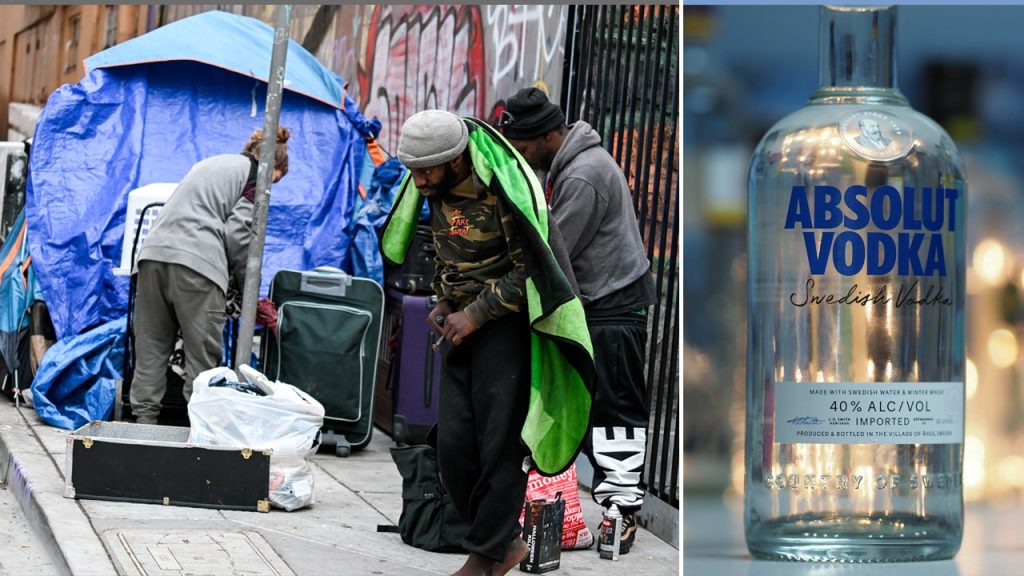The City of San Francisco has implemented a Managed Alcohol Program, providing free beer and vodka shots to homeless alcoholics to prevent alcohol withdrawal and minimize harm associated with alcohol use disorder. The program started as a response to the COVID-19 pandemic to keep homeless individuals in isolated hotel rooms from experiencing withdrawal symptoms. The program is operated by nurses and trained support staff, providing clients with a motel room, three meals a day, and enough alcohol to meet their addiction needs while keeping them at a safe level of intoxication. Clients are connected to primary care doctors, provided with resources for government identification, and offered psychiatric care, wellness activities, and other treatments.
The San Francisco managed alcohol program has been expanded from its initial 10 beds to a 20-bed program with an annual budget of $5 million. The program operates out of a former hotel in Tenderloin and has seen success in stabilizing alcoholic patients. Some beds are earmarked for the Latinx and indigenous population, while others are supported at the city’s traditional sobering center. While marijuana use is common in the program, there is no policy prohibiting it, and health providers monitor its consumption to prevent negative health effects or conflicts among clients. The program has received criticism from some, including San Francisco Mayor London Breed, who believes harm reduction is not reducing harm but making things worse.
The Managed Alcohol Program in San Francisco aims to mitigate the health, legal, and interpersonal harms associated with unsafe alcohol use. The program is not focused on decreasing the amount of alcohol consumed or moving clients toward abstinence, although these outcomes have occurred with some participants. Health officials in San Francisco claim that the program has saved $1.7 million over six months by reducing hospital visits and police calls made by participants who previously heavily relied on emergency services. The program has been praised by the San Francisco Fire Department for reducing emergency service use for a small but highly vulnerable population.
The program has faced criticism from individuals like Adam Nathan, CEO of an AI company, and San Francisco Mayor London Breed, who question the long-term effectiveness of managing addiction with taxpayer dollars. Critics argue that funds should be directed toward detox and recovery programs instead. However, officials behind the program defend its success in reducing emergency room visits, ambulance transports, and hospital stays for participants. Other countries, including Canada, Portugal, and the U.K., have adopted managed alcohol programs at a faster pace than the U.S. A 2022 study of Canada’s managed alcohol programs found that homeless individuals with severe alcoholism had a reduced risk of death and fewer hospital stays after participating in such programs.
Overall, the Managed Alcohol Program in San Francisco provides an unconventional but potentially impactful approach to addressing alcohol addiction among homeless individuals. While critics question the program’s focus on harm reduction rather than recovery, health officials argue that the program has saved money, reduced emergency service use, and improved outcomes for participants. The success of similar programs in other countries suggests that managed alcohol programs can be an effective intervention for those struggling with severe alcoholism. As the debate over the program continues, it remains to be seen how San Francisco will address the challenges and opportunities presented by this innovative approach to combating alcohol addiction among its homeless population.


